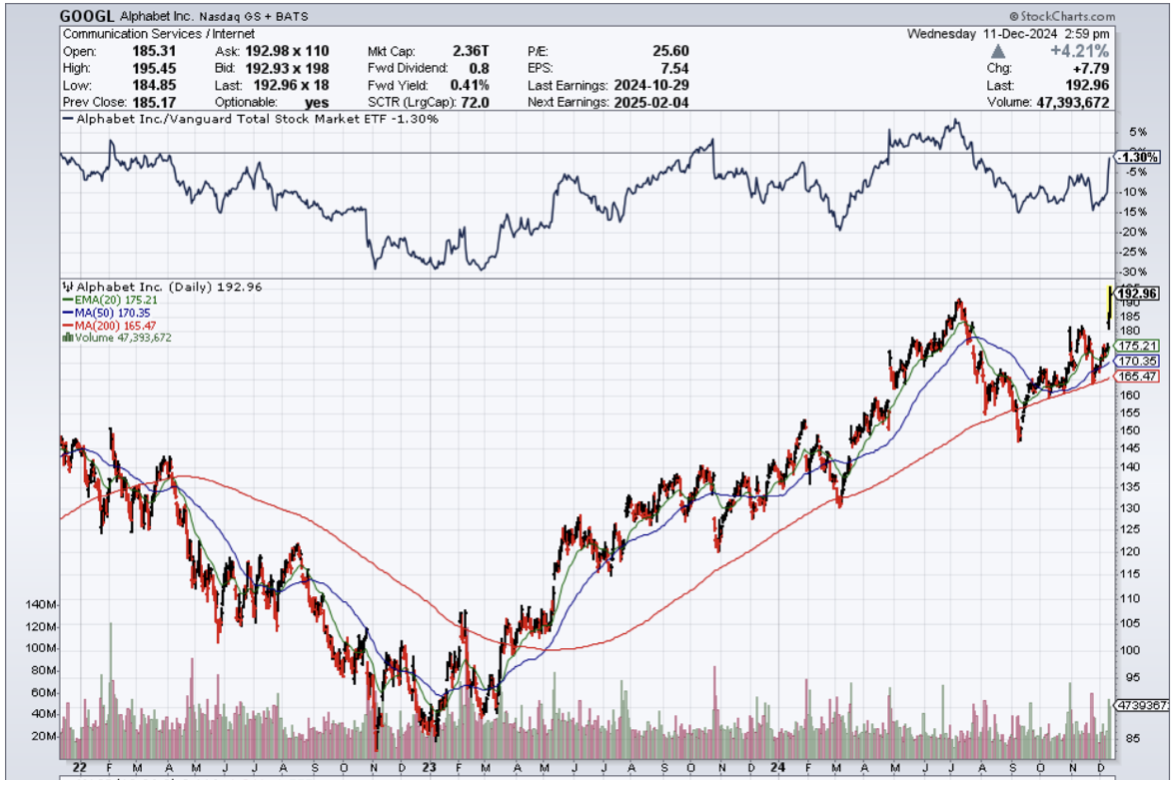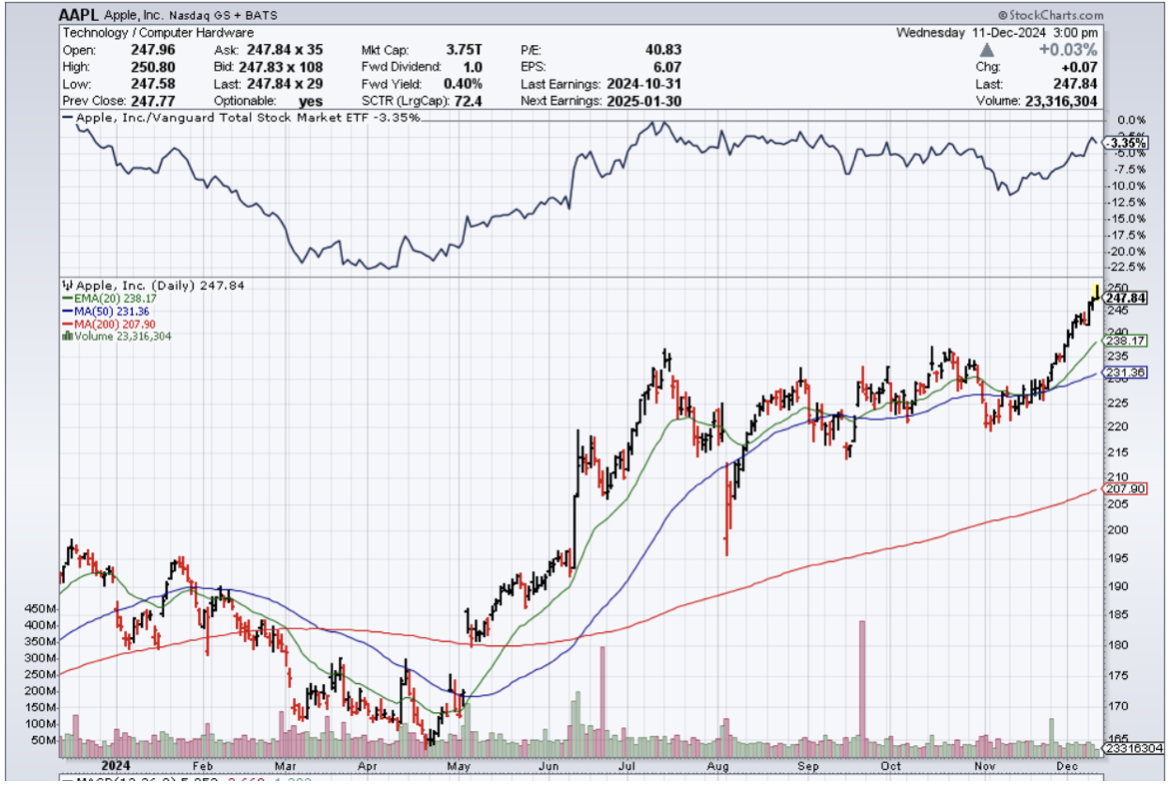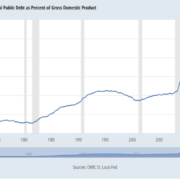Optimistic Future For Google
It isn’t a surprise that the Department of Justice is going after Google (GOOGL) to divest its Chrome browser following a ruling in August that the company holds a monopoly in the search market.
I don’t believe this will tank the cash cow business of Google Search, and let’s not forget the most likely outcome is that Chrome is retained as a division of Google.
At worst, if it does get divested, the appeal process takes many years.
Although I do believe it will become harder for Google Search to track and monitor user behavior without Google Chrome, this is by no means a deal breaker.
Plenty of traffic comes from completely different operating systems like Apple (AAPL) iOS that don’t employ the Chrome browser.
In fact, spinning out its browser would result in a massive windfall because the current setup hides the aggregate value and synergies within a larger corporation.
Once Google Chrome is spun out, animal spirits could take hold, and the value could skyrocket.
Google will naturally profit from this as well.
Chrome, which Google launched in 2008, provides the search giant with data it then uses for targeting ads. The DOJ said in a filing that forcing the company to get rid of Chrome would create a more equal playing field for search.
The DOJ said that Google will be prevented from entering into exclusionary agreements with third parties like Apple and Samsung. The department also said that Google be prohibited from giving its search service preference within its other products.
Search advertising accounted for $49.4 billion in revenue, representing three-quarters of total ad sales in the most recent period.
The DOJ’s request represents the agency’s most aggressive attempt to break up a tech company since its antitrust case against Microsoft, which reached a settlement in 2001.
In August, a federal judge ruled that Google holds a monopoly in the search market.
Also, the DOJ suggested limiting or prohibiting default agreements and “other revenue-sharing arrangements related to search and search-related products.”
The most likely outcome is that Google will be legally forced to do away with certain exclusive agreements, like its deal with Apple. I also don’t believe that Google will be forced to divest from the Android operating system, and the chances of that happening are almost zero.
Even without an exclusivity agreement, most Apple users use Google Chrome because it is still the most useful search engine.
Will that be the case in the future?
With AI changing business models left and right, it is hard to say, but in the interim, it is hard to believe that a lack of exclusivity agreement will cause any meaningful change to the bottom or top line in the next few years.
Breaking up parts of Google would result in a massive windfall for shareholders, strengthen the tech ecosystem, and make Google and its spinoff entities more competitive.
However, high-up executives are wary about voluntarily dumping revenue from the mothership because it hurts negotiating leverage when agreeing on future compensation, and that is what usually standalone corporate executives care about.
I believe spinning out some of these businesses, like Waymo, Google devices, Google Maps, and YouTube, would be great for America and give an opportunity for investors to jump into great tech companies before they skyrocket.






